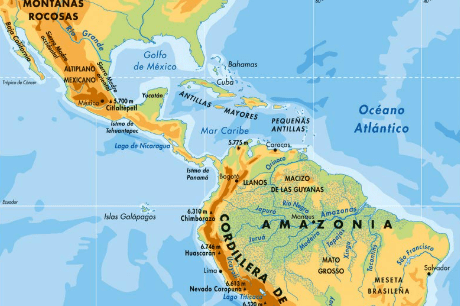Mexico’s GDP would be less affected than that of Brazil in 2020 and 2021, according to World Bank projections.
While the Mexico’s GDP would fall 7.5% in 2020, that of Brazil would register a decrease of 8%, at an annual rate.
The following year, in 2021, Mexico’s GDP would grow 3%, while Brazil’s would climb 2.2 percent.
In Brazil, the World Bank expects the economy to contract 8.0% in 2020, due to mitigation measures, falling investment, and low world prices for basic products.
Real GDP
(Percent change from previous year)
An expected recovery to 2.2% growth in 2021 is based on the assumption of a constant fading of the factors that weighed on activity in 2020, as well as the restart of the fiscal reform and business environment agenda that had been suspended. to prioritize the COVID-19 response.
Mexico’s GDP
Furthermore, the Mexican economy will be affected from multiple angles in 2020, including the fall in exports, significantly tighter financing conditions, a sharp drop in oil prices, a halt in tourism, and mobility restrictions imposed on stop the spread of the pandemic.
Fiscal support announced so far has been limited. Mexico’s GDP is expected to contract by 7.5% in 2020, but to recover by 3% in 2021, supported by a recovery in private consumption and a normalization of exports, but still burdened by modest fixed investment, which has been an obstacle to growth in recent years.
In Argentina, strict COVID-19 mitigation measures, along with lower export demand and the impacts of uncertainty related to ongoing debt negotiations, will contribute to a projected contraction of GDP of 7.3% in 2020.
A recovery to 2.1% growth in 2021 depends on a recovery in domestic demand (consumption and investment), which would result from the restoration of confidence after the successful completion of the debt negotiations.
The pandemic
Covid-19 (coronavirus) has caused the deepest global recession in decades. While the bottom line is still uncertain, due to the pandemic the vast majority of emerging markets and developing economies will contract, with lasting damage to labor productivity and potential output.
The immediate policy priorities are to reduce human costs and mitigate short-term economic losses. Once the crisis subsides, a credible commitment to sustainable policies must be reaffirmed and the reforms needed to support the long-term outlook carried out. Global coordination and cooperation will be essential.

